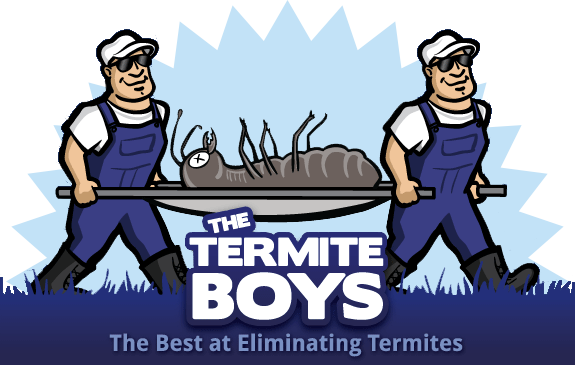Thanksgiving is a time for celebration, family gatherings, and delicious meals. But amid all the warm festivities, there’s an uninvited guest you don’t want showing up—termites. These tiny, destructive pests thrive in damp, wooden environments and can cause significant damage to your home while you’re busy carving turkey and enjoying pumpkin pie.
While most people don’t associate Thanksgiving with pest control, the truth is, termite prevention is crucial year-round. This blog will explore why termite prevention should be on your radar this holiday season, warning signs of termite infestations, and practical tips to keep your home safe.
Why Are Termites a Threat to Your Thanksgiving?
Termites don’t take a holiday. Regardless of the season, these pests stay active, posing a constant threat to your home. Here’s why Thanksgiving is a particularly vulnerable time for termite activity:
- Holiday Chaos
Amid the hustle and bustle of house cleaning, meal prep, and hosting, small signs of termite activity can easily go unnoticed.
- Storage Boxes
Thanksgiving often brings out stored boxes of holiday decorations or serving dishes tucked away in attics, garages, or basements—prime locations for termite infestations. Disturbing these areas can give termites access to other parts of your home.
- Humidity in Fall
The autumn months, with their mix of cool air and sporadic rainfall, create the perfect damp conditions for termites to thrive. Wooden furniture and structures inside your home are at greater risk.
- Upcoming Christmas Décor
Homeowners often overlook pest control during the holiday transition from Thanksgiving to Christmas. Items like untreated wooden decorations, firewood, or even freshly cut Christmas trees can unknowingly bring termites into your home.
Understanding Termite Infestations
Before you can prevent termites, it’s essential to recognize their presence. Here are the main types of termites and their signs of activity to watch out for this Thanksgiving.
Common Types of Termites
- Subterranean Termites
These termites build mud tubes to access wooden structures. They’re common in the U.S. and cause the majority of termite damage.
- Drywood Termites
Unlike subterranean termites, drywood termites don’t require contact with moist soil. They live directly in the wood, making furniture and structural beams their prime targets.
- Formosan Termites
These aggressive termites often form large colonies, making their damage rapid and extensive.
Warning Signs of Termites
- Discarded Wings
Swarming termites shed their wings after finding a suitable nesting location. Check window sills and door frames for signs of these discarded wings.
- Mud Tubes
Subterranean termites create pencil-thin mud tubes along your walls, foundation, or wooden surfaces.
- Hollow Wood
Tap on wood in your home; if it sounds hollow, termites may have already compromised the interior.
- Frass (Termite Droppings)
Drywood termites leave behind tiny, sand-like pellets near entry points or infested wood.
- Soft Clicking Sounds
A faint clicking sound within your walls may indicate termites at work chewing through wood.
How to Prevent Termites This Thanksgiving
The good news? Termite prevention is manageable with a proactive approach. Here’s how you can protect your home and enjoy a stress-free holiday season.
1. Inspect Your Home Regularly
Hire a professional pest control service to conduct thorough termite inspections. These experts can identify vulnerable areas and provide preventive treatments before an infestation occurs.
2. Declutter Storage Areas
Storing items near wooden beams or in damp areas creates an easy entry point for termites. Use plastic containers instead of cardboard boxes for decorations, and keep storage areas dry and ventilated.
3. Keep Firewood Away from Your House
Firewood left near your home can be a magnet for termites. Store it at least 20 feet away and off the ground to prevent easy access to your house’s foundation.
4. Eliminate Excess Moisture
Fix leaky pipes, increase ventilation, and ensure your gutters are clean to prevent water pooling around your home. Since termites thrive in high-moisture environments, eliminating dampness can significantly reduce the risk.
5. Seal Cracks and Crevices
Small cracks in your home’s exterior can be inviting to termites. Check for gaps around windows, doors, and the foundation, and seal them with caulk or silicone to block their entry.
6. Treat Vulnerable Wooden Structures
If you have untreated wooden furniture, fences, or beams, consider applying a protective layer of wood sealant or an anti-termite coating to deter termites from feasting.
7. Mind Your Landscaping
Avoid planting shrubs, trees, or mulch too close to your home’s foundation. The roots and wood debris can attract termites and act as a bridge directly to your house.
8. Be Cautious with Holiday Décor
Check any wooden Thanksgiving or Christmas decorations for signs of termites before bringing them into your home. Additionally, artificial trees are less likely to harbor pests than freshly cut ones.
The Cost of Ignoring Termite Prevention
The unfortunate reality is that untreated termite infestations can lead to costly damages. The National Pest Management Association reports that termites cause over $5 billion in property damage annually in the U.S. alone, and homeowners insurance typically does not cover termite-related repairs.
Financial Impact
Repairs to structural damage, furniture, and flooring can quickly add up, not to mention the cost of exterminating an advanced infestation.
Emotional Stress
Imagine the nightmare of dealing with termite damage while hosting extended family for Thanksgiving or Christmas. Termite prevention can save you from unpleasant crises and allow you to fully enjoy the season.
Give Your Home the Gift of Protection
This Thanksgiving, don’t just prep the turkey—prepare your home against termites, too. Consider scheduling a professional pest inspection to provide peace of mind, so you can focus on laughter, good food, and time with your loved ones.
Taking preventive action now can save you both time and money in the long run. Your home will thank you, your wallet will thank you, and—you guessed it—your Thanksgiving will be much sweeter (without the unwanted guests).

